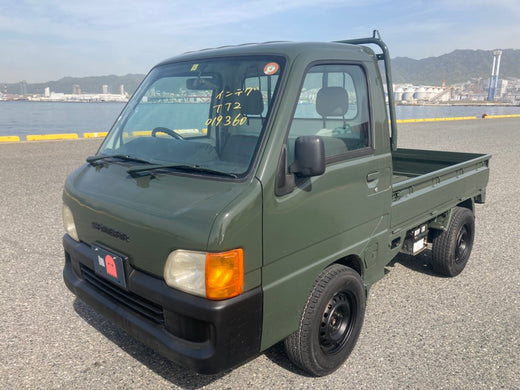Kei trucks, also known as mini trucks, are small, versatile vehicles from Japan that have gained popularity in the United States for their compact size, fuel efficiency, and practicality. As interest in these vehicles grows, many potential owners and enthusiasts are curious about their legality in different states. Oregon, known for its diverse landscapes and eco-friendly ethos, presents unique opportunities and challenges for kei truck usage. In this comprehensive blog post, we will explore whether kei trucks are legal in Oregon, examining federal and state regulations, necessary modifications, and real-life experiences from owners.
Understanding Kei Trucks
Kei trucks belong to a category of small vehicles that adhere to specific size and engine displacement limits set by Japanese regulations. Typically, these trucks have engines under 660cc and dimensions that make them exceptionally maneuverable and efficient. Despite their small size, kei trucks are known for their durability and versatility, making them ideal for various utility tasks, including agriculture, construction, and commercial use.
Federal Regulations for Kei Trucks
To understand the legality of kei trucks in Oregon, it's essential to start with federal regulations. The United States enforces strict import regulations to ensure that all vehicles meet safety and emission standards. Kei trucks, being foreign imports, must comply with the Federal Motor Vehicle Safety Standards (FMVSS) set by the National Highway Traffic Safety Administration (NHTSA).
A significant aspect of federal law is the 25-year rule, which exempts vehicles older than 25 years from complying with FMVSS. This rule simplifies the importation and legalization process for classic and vintage kei trucks. However, newer kei trucks must meet these stringent safety and emissions standards, which can be challenging due to their unique design and specifications differing from typical U.S. vehicles.
Oregon's Specific Regulations
In Oregon, kei trucks face specific regulatory challenges. While these vehicles can be titled in Oregon, they cannot be registered for on-road use. The primary reason is that kei trucks were not primarily manufactured for U.S. roads or highways, and therefore do not meet the necessary safety and emissions standards required for on-road vehicles in Oregon.
On-Road Use of Kei Trucks
Due to the restrictions mentioned, kei trucks cannot be legally driven on public roads in Oregon. This limitation significantly impacts their use for commuting or other on-road purposes. Owners of kei trucks must be aware of these restrictions to avoid potential legal issues and penalties.
Off-Road Use and Agricultural Exemptions
Despite the on-road restrictions, kei trucks can still be useful in Oregon for off-road and specific applications such as agricultural purposes. In rural areas and on private property, kei trucks can be utilized without adhering to the stringent regulations required for on-road use. This makes them a favored choice for farmers, ranchers, and businesses operating in off-road environments.
Oregon provides some leniency in registering kei trucks as off-highway vehicles (OHVs). These vehicles can be used on farms, ranches, and other private properties without needing to meet full on-road safety and emissions standards. However, OHVs are restricted from being driven on public roads, except for short distances when crossing from one part of a property to another.
Modifications and Compliance
Even with potential modifications, kei trucks cannot meet the comprehensive safety and emissions standards required for on-road use in Oregon. As a result, owners looking to utilize these vehicles must focus on off-road applications or other permitted uses under state law.
Real-Life Experiences and Success Stories
While kei truck owners in Oregon face significant restrictions, many have found creative ways to use their vehicles within the legal framework. These owners often share their experiences and tips in online forums and social media groups dedicated to kei trucks and other imported vehicles.
Networking with other kei truck enthusiasts can provide valuable insights and recommendations for off-road use, maintenance, and potential modifications suitable for their specific needs.
Conclusion: Navigating the Legal Landscape
In conclusion, while kei trucks face significant regulatory hurdles for on-road use in Oregon, they can still be valuable for off-road and agricultural purposes. Understanding federal and state regulations, exploring permitted uses, and adhering to legal requirements are crucial steps in this process. By staying informed and seeking guidance from experts and fellow enthusiasts, you can navigate the complexities of owning and using a kei truck in Oregon.
Whether you are considering a kei truck for its practicality, fuel efficiency, or as a unique addition to your vehicle collection, knowing the legal requirements and options available in Oregon is essential. Stay informed, and connect with the kei truck community to successfully navigate the path to legal and practical use.

